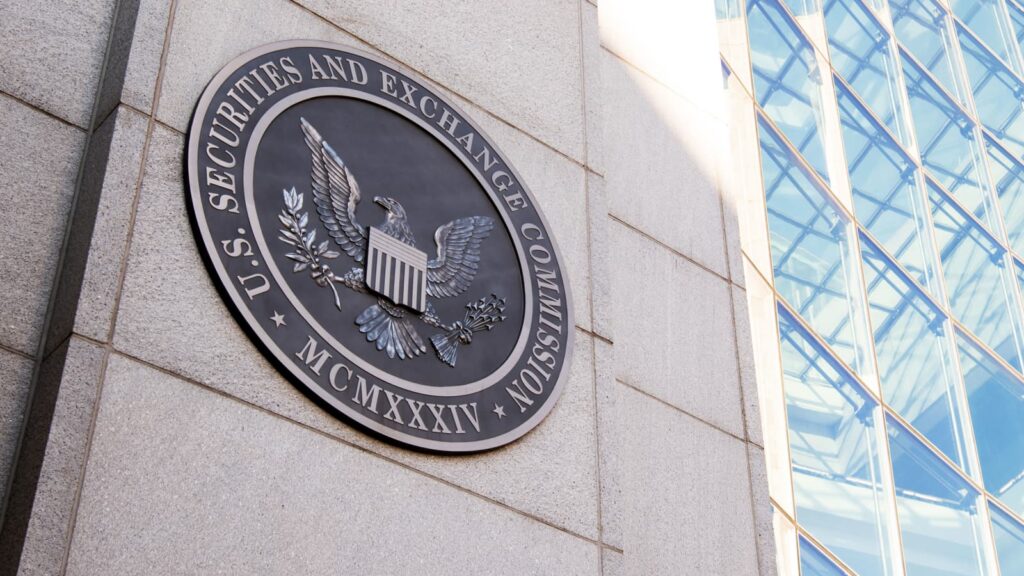In a blog post published on January 8, OpenAI responded to a lawsuit brought forth by The New York Times (NYT), categorically dismissing the allegations as “without merit.”
The post also highlighted OpenAI’s ongoing collaborative efforts with various news organizations.
OpenAI revealed that prior to the lawsuit, they were engaged in what appeared to be “progressing constructively” discussions with the NYT.
The lawsuit, filed by the NYT against OpenAI and Microsoft, centers on claims of unauthorized use of NYT content for training AI chatbots.
OpenAI firmly refutes these claims and views this as an opportunity to clarify their business practices, intent, and technological development.
The blog post outlined four key claims upon which OpenAI bases its arguments.
Firstly, OpenAI stressed its active collaboration with news organizations, emphasizing the creation of new opportunities for news dissemination.
Secondly, they asserted that their content usage falls under “fair use,” but they have introduced an “opt-out” option as a goodwill measure.
Additionally, OpenAI acknowledged and committed to addressing the issue of content “regurgitation” as a rare bug in their technology.
READ MORE: Mysterious Bitcoin Transaction: $64,000 Spent on Enigmatic 9MB Data Inscription
Lastly, they implied that the NYT’s perspective might not represent the full story.
OpenAI also listed several media industry partnerships, including a recent integration with German media giant Axel Springer, aimed at addressing AI-related challenges.
The News/Media Alliance was mentioned as an organization with which OpenAI collaborates to explore opportunities, discuss concerns, and provide solutions.
However, it’s worth noting that the News/Media Alliance had previously published a 77-page paper in October and submitted it to the United States Copyright Office, raising concerns about AI models being trained on datasets primarily consisting of content from news publishers.
OpenAI highlighted its “opt-out process” for publishers, which prevents its tools from accessing the websites of publishers who have chosen to employ this feature.
Notably, The New York Times itself adopted this opt-out process in August 2023.
The central argument in the NYT’s case against OpenAI and Microsoft revolves around the claim that “www.nytimes.com” is among the most frequently used proprietary sources, ranking only behind Wikipedia and a U.S. patent database.
The NYT asserted that they had contacted OpenAI and Microsoft in April 2023 to express concerns regarding intellectual property but received no satisfactory resolution.
Despite OpenAI’s firm rebuttal, legal experts have regarded the NYT’s case as the most substantial thus far, alleging copyright infringement by generative AI.
OpenAI concluded their blog post by stating that any misuse of content claimed by the NYT is not representative of typical user activity and their content is not intended to serve as a substitute for The New York Times.
They expressed hope for a constructive partnership with the NYT, acknowledging and respecting the newspaper’s long history and influence in the media industry.
Bitcoin is on the verge of a potentially historic week, with the crypto market anxiously awaiting the approval of a spot Bitcoin exchange-traded fund (ETF) in the United States.
The belief is that such approval could trigger the next crypto bull market and drive widespread crypto adoption.
Several companies hoping to launch spot Bitcoin ETFs have submitted their latest Form S-1 amendments on January 8, increasing the anticipation.
Analysts and observers are predicting that the U.S. Securities and Exchange Commission (SEC) may grant approval for the first spot Bitcoin ETF around January 9 or 10.
Bloomberg’s Senior ETF analyst, Eric Balchunas, is notably confident that there is a 90% chance of approval.
Regardless of the outcome, the crypto markets are expected to experience significant turbulence.
The entry of giants like BlackRock and Fidelity, with trillions of dollars in assets under management, into the Bitcoin ETF market may alter the dynamics of companies like Coinbase and MicroStrategy.
MicroStrategy, in particular, could face challenges as a spot Bitcoin ETF could open doors for traditional investors to enter the crypto market, potentially affecting Bitcoin proxies like MSTR.
MicroStrategy has been accumulating Bitcoin as a hedge against inflation and currently holds a substantial amount, making it a popular choice for investors looking to indirectly invest in Bitcoin through the stock market.
However, with the approval of a spot Bitcoin ETF, MicroStrategy may lose its status as the go-to Bitcoin proxy for traditional investors.
READ MORE: Nonfiction Authors Sue OpenAI and Microsoft for Copyright Infringement in Latest Legal Battle
Spencer Bogart, a fundamental analyst, suggests that while the ETF approval could raise MicroStrategy’s stock price due to its Bitcoin exposure, it might also impact the stock’s premium compared to the actual value of Bitcoin it holds.
A spot Bitcoin ETF has the potential to drive crypto adoption by providing a bridge between traditional and crypto markets, attracting Wall Street capital.
This influx of capital could also benefit MicroStrategy by creating buying pressure on its stock.
Investors considering MicroStrategy over a Bitcoin ETF should weigh the fact that they won’t need to pay a management fee, unlike ETFs.
Additionally, MicroStrategy is a thriving business with a diverse portfolio and a strong financial position related to its Bitcoin investments.
Coinbase, on the other hand, has positioned itself as a custodian for various Bitcoin ETFs, including those from BlackRock, VanEck, and Grayscale.
This move could significantly boost Coinbase’s revenue and attract more traditional investment sector players to use its custodial services.
However, there are potential challenges for Coinbase, including a pending SEC case related to its staking-as-a-service program, which could impact its stock price.
In the midst of all this, Bitcoin’s price remains highly sensitive to the SEC’s decision regarding the spot Bitcoin ETF.
The recent 7% price drop on January 3, following hints of a potential SEC rejection, underscores the volatility of the cryptocurrency and the market’s dependence on regulatory decisions.
Core Scientific, a Bitcoin mining company, has successfully closed a $55-million equity financing round, marking a significant milestone in its journey back to financial stability.
The announcement, made on January 8th, revealed that the equity offering, which had expired the previous week, was met with overwhelming demand, resulting in oversubscription.
Core Scientific’s CEO, Adam Sullivan, expressed his satisfaction with the outcome, stating that this successful funding round, combined with the full repayment of previously drawn amounts from their debtor-in-possession (DIP) financing, positions the company to exit Chapter 11 bankruptcy in January with strengthened liquidity and a robust foundation for future growth.
As of its most recent financial statement dated November 2023, Core Scientific reported $2.3 billion in assets and $559 million in liabilities, culminating in total equity of $1.8 billion.
The company has outlined its intention to relist on the Nasdaq exchange once the bankruptcy proceedings have been fully resolved.
On January 4th, Core Scientific took a significant step towards recovery by announcing the complete repayment of its outstanding DIP balance, which had been provided by its lender, B. Riley Financial.
READ MORE: Nebraska Legislature Proposes Bill to Establish Crypto Standards
Importantly, the company still retains access to the remaining $35 million in funding under the DIP agreement.
Core Scientific’s journey to solvency was prompted by various challenges, including the crypto market downturn, escalating energy costs, heightened mining difficulty, and the burden of bad debt stemming from loans to crypto firm Celsius.
Under its restructuring plan, the company is set to emerge from bankruptcy with $709 million in net debt and $791 million in shareholder equity.
Core Scientific’s shareholders are slated to receive new shares, offered at a ratio of 25:1, effectively providing them with $1.08 per pre-exchange share.
Notably, noteholders will also benefit from the restructuring, receiving $1.628 for each $1 face value of convertible notes due in April and $1.201 per $1 face value for notes with an August due date.
This successful equity financing round and debt repayment demonstrate Core Scientific’s commitment to its recovery strategy, positioning it for a strong comeback in the cryptocurrency mining industry.
Despite a recent hack of the United States Securities and Exchange Commission’s (SEC) social media account, the regulatory body is expected to proceed with its decision on approving spot Bitcoin exchange-traded funds (ETFs) this week.
On January 9th, the SEC’s Twitter account, known as the “X account,” was compromised, leading to an unauthorized post claiming that spot Bitcoin ETFs had been approved in the United States.
Although the message was removed approximately 20 minutes later, it caused significant disruption on social media and in the financial markets.
The SEC has reported that it is cooperating with law enforcement agencies to investigate the incident thoroughly.
Some observers have expressed concerns that this incident might be exploited as an excuse to delay the decision beyond the anticipated deadline of January 10th.
However, many consider this to be a remote possibility. Dennis Porter, CEO of Satoshi Action Fund, suggested that the SEC’s intentions would determine whether they might use this event to slow down the ETF approval process.
Porter remains optimistic that the SEC will grant approval to the spot Bitcoin ETF applicants on January 10th.
He stated that information from his contacts suggests that the ETF could be approved as early as this week or even as soon as tomorrow.
READ MORE: Bitcoin ETF Race Heats Up as Leading Players File Final Amendments with SEC
U.S. attorney and commercial litigator Joe Carlasare also believes that the SEC is likely to make a decision by the January 10th deadline.
He considers it extremely unlikely that the incident would lead the SEC to delay the approval or rejection of the ETFs.
However, Mati Greenspan, from cryptocurrency-focused finance firm Quantum Economics, raised the possibility that the SEC might attempt to use the false post as a pretext for a delay.
He mentioned that regulatory agencies have used various tactics to influence the markets in the past.
Bloomberg ETF analyst Eric Balchunas remains optimistic, anticipating the official approval of spot Bitcoin ETFs sometime between 4:00 pm and 5:00 pm Eastern Time on January 10th.
Digital asset lawyer Anthony Tu-Sekine of Seward and Kissel expressed skepticism that the incident would impact the likelihood of approvals at this late stage.
He found it puzzling that someone would engage in such actions when approval was already widely anticipated.
The United States Securities and Exchange Commission (SEC) has issued a renewed warning to investors regarding the perils of FOMO (Fear of Missing Out) crypto investing.
This caution comes just days before the expected approval of spot Bitcoin exchange-traded funds (ETFs).
In a recent post on X, formerly known as Twitter, the SEC’s Office of Investor Education emphasized the risks associated with digital assets, encompassing meme stocks, cryptocurrencies, and nonfungible tokens (NFTs).
The “Say no go to FOMO” blog post initially surfaced on January 23, 2021, during a bullish period for both the crypto and equities markets, with Bitcoin, Ether, and numerous altcoins reaching record highs by November 2021.
A similar warning was reiterated around March 2022 when market temperatures were cooling.
Social media speculations have arisen, suggesting that this warning might foreshadow the SEC’s impending approval of one or more spot Bitcoin ETFs currently awaiting a decision before the looming January 10 deadline.
The SEC’s advisory cautioned against making investment decisions solely based on endorsements from celebrities and athletes.
It cited the temptation to follow popular figures promoting investment opportunities and the importance of conducting thorough due diligence.
READ MORE: Nonfiction Authors Sue OpenAI and Microsoft for Copyright Infringement in Latest Legal Battle
The regulatory body has previously imposed fines and penalties on celebrities for their involvement in endorsing specific cryptocurrencies.
An example includes Kim Kardashian, who, on October 3, 2023, agreed to pay a $1.26 million settlement to the SEC.
She was charged with failing to disclose a $250,000 payment she received for promoting a dubious token called Ethereum Max (EMAX) to her 360 million Instagram followers.
Furthermore, the report warned investors about the potential volatility inherent in assets influenced by trends and influencers.
While initially attractive, such investments can incur substantial losses as market dynamics evolve rapidly.
The cryptocurrency industry is closely monitoring developments in the Bitcoin ETF arena.
Senior Bloomberg ETF analyst Eric Balchunas anticipates that most applicants meeting the regulator’s prerequisites before December 29 will gain approval in the coming week.
This development adds an element of anticipation to the crypto market, as the potential approval of these ETFs could further legitimize and mainstream the cryptocurrency space.
However, the SEC’s latest warning serves as a reminder to investors to exercise caution and not succumb to FOMO-driven decisions.
In 2023, there was a significant surge in the global acceptance of Bitcoin as a mode of payment, with the number of merchants embracing this digital currency nearly tripling, as reported by BTC Map, a prominent Bitcoin merchant mapping provider.
According to their latest data, the tally of restaurants, bars, shops, and various services that were open to accepting Bitcoin reached a remarkable 6,126 by the close of the year.
This was a substantial increase from a mere 2,207 merchants that supported Bitcoin payments at the outset of 2023.
However, it’s worth noting that this figure did experience a slight dip from its pinnacle in late September when it peaked at 6,590 Bitcoin-friendly establishments.
BTC Map operates by utilizing open-source mapping data from OpenStreetMap, enabling both businesses and users to tag locations where Bitcoin is accepted.
This could suggest that the increase may partly be attributed to users diligently adding more businesses to the database, contributing to the growing numbers.
REAX MORE: Bitcoin Prepares for Volatility as U.S. Spot ETF Decision Looms in 2024
A closer look at the map provided by BTC Map reveals noticeable concentrations of Bitcoin-accepting merchants in Central and South America, while there are fewer such businesses across Africa and Asia.
Notably, the United States and Europe also showed higher counts of merchants willing to embrace cryptocurrency as a means of payment.
In Southeast Asia, the Philippines emerged as the leader in the number of Bitcoin-accepting merchants, while countries like China, India, and Russia had virtually none, as indicated on the map.
It is interesting to note that in November, Cointelegraph reported that many of the merchants accepting cryptocurrencies often chose to sell their digital assets back to the markets once they received them.
This practice highlights the volatility and speculative nature of cryptocurrencies as a store of value, even as they gain wider acceptance in the global marketplace.
As Bitcoin and other cryptocurrencies continue to evolve, the global merchant landscape will likely witness further shifts in acceptance and utilization patterns, with potential implications for the broader financial ecosystem.
On January 5th, Cathie Wood’s ARK Invest made another significant move by selling 133,823 shares of the cryptocurrency exchange Coinbase.
The trading day began with Coinbase stock at $152.67 and concluded at $153.98.
ARK Invest publicly disclosed its trading activities for January 5th on January 8th through its official platform, X (formerly Twitter).
This disclosure included the sale of 107,151 Coinbase shares from its ARK Innovation ETF (ARKK), 15,892 shares from its ARK Next Generation Internet ETF (ARKW), and 10,780 shares from its ARK Fintech Innovation ETF (ARKF).
The total value of the recent Coinbase share divestment amounted to approximately $20.6 million, with the stock price hovering around $153.98.
In addition to selling Coinbase shares, ARK Invest also made changes to its portfolio by reducing its holdings in Stratasys and acquiring shares of Palantir Technologies and Iridium Communications.
Notably, this isn’t the first time ARK Invest has reduced its Coinbase holdings.
On January 3rd, ARK sold 166,000 Coinbase shares worth approximately $25 million, following a previous sell-off of 237,000 shares on December 5, 2023.
These divestments in December and January have yielded ARK Invest around $78 million.
READ MORE: Bitcoin Prepares for Volatility as U.S. Spot ETF Decision Looms in 2024
Despite these ongoing reductions in Coinbase shares, ARK still maintains a significant position in the exchange.
Coinbase remains the largest asset in the ARKK ETF, representing 10.04% of the portfolio, as well as being the largest asset in the ARKW ETF at 10.37% and the ARKF ETF at 13.41%.
These divestments come at a crucial time in the cryptocurrency world as the community eagerly awaits the decision of the United States Securities and Exchange Commission (SEC) regarding the approval or denial of the first spot Bitcoin exchange-traded fund (ETF) available to U.S. investors.
Cathie Wood’s ARK Invest is one of the 14 companies that have submitted applications for a spot Bitcoin ETF with the SEC.
Their ETF, known as ARK 21Shares, was developed in partnership with Swiss firm 21Shares, which specializes in cryptocurrency exchange-traded products.
Notably, ARK and 21Shares were the first to submit updates to their spot Bitcoin ETF application before the SEC’s December 29th deadline.
On January 4th, the ARK 21Shares Bitcoin ETF officially filed a registration notice with the SEC.
The SEC has until January 10th to make a decision on the ETF application, a decision that will be closely watched by the cryptocurrency and investment communities.
Less than two years after embracing Bitcoin as an official currency, Próspera, a special economic zone located in Roatan, Honduras, has taken a bold step by officially recognizing Bitcoin as a unit of account.
This means that Bitcoin can now be used as a measure of the market value of goods and services within the zone.
The driving force behind this significant development is Jorge Colindres, who serves as the acting manager and tax commissioner of Próspera Zone for Employment and Economic Development (ZEDE).
On January 5th, Colindres spearheaded the initiative, marking a groundbreaking moment for the economic zone.
In a post on January 7th, shared on a platform similar to Twitter, Colindres explained the motive behind this move, stating, “At @ProsperaZEDE we believe in the right to financial freedom and monetary freedom.
People should be free to carry out transactions, do their accounting, and report taxes in the currency of their free choice.”
This recognition allows Bitcoin to serve as a monetary unit for assessing the market value of various goods and services within the Próspera zone.
However, Colindres acknowledged certain limitations preventing the immediate implementation of the “Final BTC Tax Payment Procedure.”
READ MORE: Mysterious Bitcoin Transaction: $64,000 Spent on Enigmatic 9MB Data Inscription
These limitations include technological constraints within the eGovernance system and external regulatory issues.
For the time being, entities opting to pay taxes in Bitcoin will calculate their tax liabilities internally in BTC but report them to Próspera ZEDE in United States dollars or the Honduran lempira.
Once these issues are resolved, these entities will have the opportunity to report and pay their tax liabilities directly in Bitcoin.
To utilize Bitcoin as their unit of account, interested parties must submit a notice to Próspera’s tax commission within 30 days of the relevant tax period, and this notice should reference an approved cryptocurrency exchange, such as Coinbase or Kraken.
Próspera ZEDE was launched in May 2020 on the northern island of Roatan and took a significant step by making Bitcoin legal tender in April 2022.
This decision followed in the footsteps of El Salvador, which made Bitcoin legal tender nationwide in September 2021.
Colindres proudly described Próspera ZEDE as one of the “most competitive special regimes” in Latin America, highlighting its impressive track record of attracting over $100 million in investments and creating over 3,000 jobs across the country during its three-year tenure.
United States Securities and Exchange Commission (SEC) Chair Gary Gensler recently took to social media platform X, formerly known as Twitter, to address crypto investors and asset managers eagerly awaiting the verdict on their spot Bitcoin exchange-traded fund (ETF) applications.
In his January 8th post on X, Gensler urged crypto investors to exercise caution without explicitly mentioning the spot Bitcoin ETF.
He emphasized that asset managers might not be in compliance with federal securities laws when offering crypto investment products.
Gensler also highlighted the inherent risks and volatility associated with cryptocurrencies.
He warned about fraudulent activities targeting retail investors, such as bogus coin offerings, Ponzi and pyramid schemes, and outright theft where project promoters disappear with investors’ funds.
Gensler’s remarks, posted at 3:40 pm UTC, coincided with several spot Bitcoin ETF issuers submitting amended S-1 applications to the SEC.
This step represents one of the final stages in potentially gaining approval for these investment vehicles in the United States.
READ MORE: Nebraska Legislature Proposes Bill to Establish Crypto Standards
The outcome remains uncertain at the time of writing, as multiple applications have been submitted by entities including Valkyrie, WisdomTree, BlackRock, VanEck, Invesco, Galaxy, Grayscale, ARK Invest, 21Shares, Fidelity, Bitwise, and Franklin Templeton.
Critics have voiced their discontent with Gensler over the SEC’s failure to approve a spot crypto ETF despite years of applications from various asset managers.
In contrast, Canadian regulators permitted firms to list spot Bitcoin ETFs on exchanges starting in 2021.
The S-1 filings on January 8th were anticipated, stemming from a deadline set by the SEC following a series of 19b-4 filings on January 5th.
While these actions indicate progress toward allowing crypto ETF listings on U.S. exchanges, they do not guarantee approval.
The commission still holds the option to deny applications, but any such denial would likely require different grounds than those previously used for other ETFs.
In August, a federal judge ordered the SEC to reconsider its rejection of Grayscale’s spot BTC ETF application, citing that the commission’s decision was “arbitrary and capricious.”
This ongoing debate highlights the complex and evolving regulatory landscape surrounding cryptocurrencies and ETFs in the United States.
Nebraska’s legislative landscape witnessed a significant development on January 5th as State Senator Eliot Bostar introduced Bill 911, aimed at implementing the Blockchain Basics Act within the state.
This legislative proposal has a fundamental objective: to establish a framework for safe and legally compliant cryptocurrency activities, encompassing mining, holding, and trading, all in the best interests of Nebraska’s residents.
The Blockchain Basics Act, as envisioned in Bill 911, takes a balanced approach. It allows individuals to set up blockchain nodes and engage in crypto mining on residential properties without the necessity of obtaining licenses.
However, there’s a crucial caveat: all operators must adhere to local noise ordinances, ensuring that the tranquility of neighborhoods is maintained.
In contrast, crypto-related businesses will be restricted to operating exclusively from designated industrial zones.
Moreover, the legislation places constraints on political subdivisions, preventing them from altering existing noise pollution limits, imposing new requirements that do not pertain to data centers, or altering zoning regulations.
Additionally, the Blockchain Basics Act distinguishes staking services from securities within the context of Nebraska’s regulatory framework.
Notably, the bill goes beyond promoting crypto activities; it also emphasizes the protection of investor rights.
It guarantees the right to self-custody for every investor and seeks to shield them from onerous cryptocurrency taxes within the state.
Senator Bostar’s commitment to fostering a level playing field for crypto enthusiasts mirrors efforts in other states, such as California.
READ MORE: BlackRock Plans Workforce Reduction Ahead of Potential Bitcoin ETF Approval
Coincidentally, on January 4th, California State Senator Steve Padilla introduced two bills with the overarching goal of establishing a “safe and ethical framework” for artificial intelligence (AI) service providers operating within the state.
Senate Bill 892 envisions the California Department of Technology setting standards for safety, privacy, and non-discrimination in AI services.
Meanwhile, Senate Bill 893 seeks to establish an AI research hub involving the Government Operations Agency, the Governor’s Office of Business and Economic Development, and the Department of Technology.
Senator Padilla underscored the importance of these initiatives in ensuring that AI benefits the entire society, rather than being monopolized by a select few companies.
He emphasized the need for public investments to prevent a future where a handful of billionaires dictate the trajectory of AI technology.
In summary, Nebraska’s introduction of Bill 911 and California’s initiatives led by Senator Padilla exemplify the ongoing efforts at both state and local levels to regulate emerging technologies like blockchain and AI, while safeguarding the interests of the public.
These legislative moves reflect the states’ commitment to fostering innovation within a structured and ethical framework.











